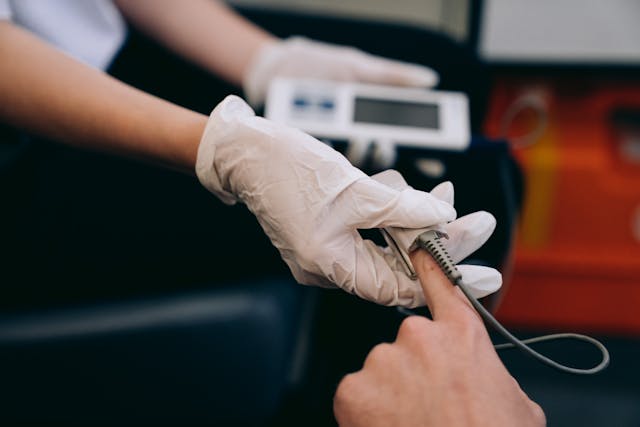Picture this: your front desk staff drowning in paperwork while patients wait. Sound familiar? Small clinics nationwide wrestle with antiquated paper systems that literally bleed money and jeopardize patient outcomes. Skyrocketing admin expenses, billing disasters, and compliance nightmares? They’re killing independent practices left and right.
About 56% (n = 23) of the studies were conducted in hospitals, while the remaining were done in mental health, maternity, and ambulatory care settings, demonstrating that going digital isn’t exclusively for massive hospital networks anymore.
Your lifeline? Modern EHR platforms engineered specifically for smaller healthcare operations.
Financial Game-Changer: How Modern EHR Systems Revolutionize Small Practice Finances
Here’s what’ll shock you – while small clinics battle crushing financial burdens, the monetary benefits of modern EHR platforms frequently astound practice owners through both immediate relief and sustained savings.
Using top-rated EHR software, your small practice can handle countless manual processes within minutes, preserving hours previously thrown away. Documentation time plummets when physicians leverage pre-built templates and voice recognition technology. Team members who used to waste hours filing documents and searching for patient charts can redirect energy toward profit-generating tasks instead.
Physical storage expenses vanish completely once you digitize patient documentation. No more buying filing systems, covering off-site storage fees, or replacing water-damaged records. Printing costs nosedive dramatically – everything from diagnostic results to specialist referrals becomes electronic and immediately available.
Simplified Billing Through Automated Insurance Processing
The benefits of EHR become crystal clear when clean claim submission rates jump from 70% to exceeding 95%. Automated coding recommendations minimize errors causing claim denials. Instant insurance verification stops rejections before they occur.
But wait – there’s more. Beyond those remarkable financial gains, modern EHR platforms deliver their most significant value through revolutionary improvements in patient care standards and clinical results.
Transforming Patient Care with Advanced EHR Capabilities
Clinical decision support features completely reshape how small practices provide healthcare services. Instant access to detailed patient backgrounds means you’ll never guess about medication sensitivities or prior treatments again.
Instant Access to Complete Patient Medical Records
Doctors can immediately examine years of patient information during appointments. Historical diagnoses, current medications, and laboratory findings appear instantly. This thorough perspective creates more precise diagnoses and superior treatment strategies.
Clinical Decision Support for Enhanced Diagnostic Accuracy
Integrated warnings alert about medication conflicts and possible complications. Research-backed treatment guidelines direct clinical choices. These capabilities help small practices deliver healthcare quality matching larger medical facilities.
Automated Drug Interaction Monitoring and Allergy Notifications
Patient safety increases exponentially when your system automatically screens for hazardous medication combinations. Electronic health record advantages include preventing serious negative reactions that might trigger malpractice lawsuits or patient injuries.
While patient care capabilities grow stronger, maintaining solid security and regulatory adherence becomes increasingly vital. Thankfully, modern EHR systems dominate both domains.
Security and Compliance Benefits of EHR System Modernization
HIPAA adherence becomes straightforward through integrated security protocols protecting patient information continuously. Among the 41 studies, 22 primarily involved nurses as participant users, while the other 19 had participants from various professions, including physicians, doctors, dentists, pediatricians, pharmacists, administrators, data capturers, and mental health practitioners. This demonstrates how upgrading EHR system improvements impact complete healthcare teams.
HIPAA Compliance Simplified Through Integrated Security Protocols
Automatic audit records monitor every patient file access. Permission-based controls guarantee staff view only necessary information. These features eliminate compliance uncertainty for small clinic administrators.
Military-Grade Data Protection and Recovery Systems
Patient information remains secure through advanced encryption during storage and transmission. Automated daily backups prevent information loss from equipment failures or catastrophic events.
With security issues resolved, small clinics can concentrate on modern EHR systems’ specialty: optimizing daily operations and removing tedious administrative responsibilities.
Operational Excellence Through Small Clinic Software Solutions
Small clinic software converts chaotic workflows into seamless, predictable operations. Appointment coordination integrates perfectly with patient documentation and billing platforms.
Appointment Management and Patient Portal Connectivity
Patients book appointments online, decreasing phone interruptions and missed visits. Automated notifications through text or email maintain full, productive schedules.
Streamlined Prescription Handling and Electronic Prescribing
E-prescribing eliminates handwriting mistakes and pharmacy verification calls. Formulary verification ensures patients receive insurance-covered medications. Prescription refills happen through simple clicks rather than time-consuming phone conversations.
These operational enhancements establish the ideal foundation for expanding healthcare delivery beyond conventional office visits through integrated telehealth features.
Future-Proofing Your Practice Through AI-Enhanced EHR Technology
The development of generative artificial intelligence also promises significant changes in electronic medical records. AI can incorporate even data that couldn’t be integrated into the EHR due to lack of interoperability, search for correlations in historical data, and spot worrisome trends based on medical history analysis.
Artificial Intelligence for Clinical Documentation Enhancement
Voice-to-text capabilities transform spoken observations into organized documentation. Natural language processing automatically extracts essential information from clinical narratives.
Machine Learning for Proactive Patient Care
AI systems identify patients facing complication risks before symptoms manifest. This preventive strategy enhances outcomes while decreasing emergency interventions and hospital admissions.
With compelling EHR benefit evidence in hand, your next critical move involves developing a strategic deployment that maximizes benefits while minimizing operational disruption.
Strategic Implementation for Seamless EHR Migration
Successful deployment demands thorough planning and practical timelines. Most small practices finish transitions within 3-6 months following established methodologies.
Team Training Programs and Organizational Change Leadership
Thorough education ensures staff confidence with updated workflows. Continuous support minimizes resistance and speeds adoption throughout your entire organization.
Gradual Implementation Strategy for Minimal Operational Disruption
Introducing features progressively prevents overwhelming staff and patients. Beginning with fundamental functions and increasing complexity gradually ensures smoother organizational transitions.
Your Next Move Toward Practice Excellence
Modern EHR systems transcend simple digital storage solutions; they’re comprehensive platforms revolutionizing how small clinics function and provide healthcare. From substantial cost reductions and enhanced patient results to strengthened security and AI-ready capabilities, the benefits of EHR technology speak volumes.
Small practices embracing these platforms position themselves for sustainable expansion while delivering exceptional patient care. Don’t allow obsolete systems to prevent your practice from achieving its complete potential.
Frequently Asked Questions About Modern EHR Solutions
How long does EHR implementation typically take for small clinics?
Most small practices finish implementation within 3-6 months, depending on data complexity and staff training requirements, with minimal patient care disruption.
Can small clinics afford modern EHR systems?
Cloud-based solutions offer scalable pricing starting under $200 monthly per provider, with subscription models designed specifically for smaller practice budgets.
Will upgrading disrupt patient care during transition?
Proper planning and phased implementation minimize disruption to 2-3 days during critical transition phases, ensuring continuous patient care throughout the process.




